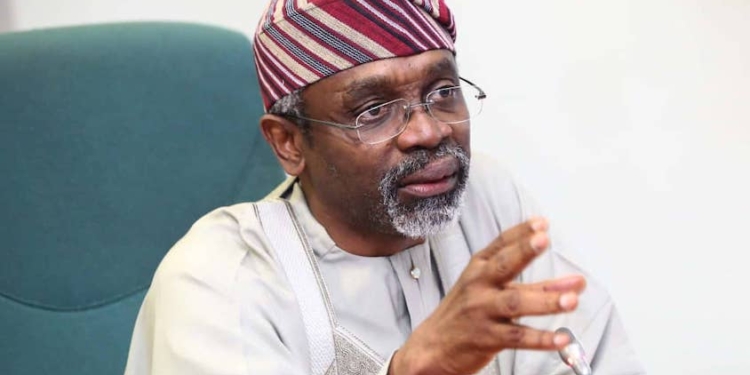Speaker of the house of representatives, Femi Gbajabiamila has stated that there is a need to amend the constitution to increase the educational qualification for election into the office of the president.
Gbajabiamila also wants the academic qualification of other elective offices including the legislature to be raised from the current minimum requirement.
Section 131 (d) of the 1999 constitution states that “A person shall be qualified for election to the office of the President if he has been educated up to at least School Certificate level or its equivalent”.
This was stated on Monday by the speaker at the University of Lagos’ convocation.
Gbajabiamila noted that raising the minimum academic requirement for the office of the president will help to reform the electoral system.
“I also sincerely believe that the national assembly needs to look into section 131 (d) of the 1999 constitution with a view to increasing the minimum educational qualification for persons aspiring to be future presidents of Nigeria and other top offices including the national assembly as against the current minimum requirement of a secondary school certificate or its equivalent,” Gbajabiamila said.
“As we have reduced the age for eligibility to contest those offices, so also, we should increase the minimum educational requirement. It will be another step in reforming our electoral system and providing strong leadership for the country.”
However, for that section of the constitution to be amended, it must be supported by 24 states houses of assembly.
Section 9 (2) of the constitution states that “An Act of the National Assembly for the alteration of this Constitution, not being an Act to which section 8 of this Constitution applies, shall not be passed in either House of the National Assembly unless the proposal is supported by the votes of not less than two-thirds majority of all the members of that House and approved by resolution of the Houses of Assembly of not less than two-thirds of all the States”.
Speaking on reforming the educational sector, Gbajabiamila said tertiary institutions need to develop a new understanding of the “changing nature of work and the future of employment and allow this new understanding to inform the nature of instruction and the substance of the education they provide”.
He said the house of representatives is working on legislation to establish a tertiary education loan policy for students.
“We will continue in that effort until we successfully design a system that suitably addresses our concerns and meets our needs. As a politician, one of the most frequent requests I receive is for funding for tertiary education of otherwise bright students who cannot further their education due to a lack of funds. One way this can be addressed is through a well-structured student loan policy as is seen in many countries of the world”, he said.
“The repayment of these loans shall commence two years after completion of the National Youth Service. However, we must all understand that public support for any such system will depend significantly on the tertiary institutions themselves.”






Discussion about this post